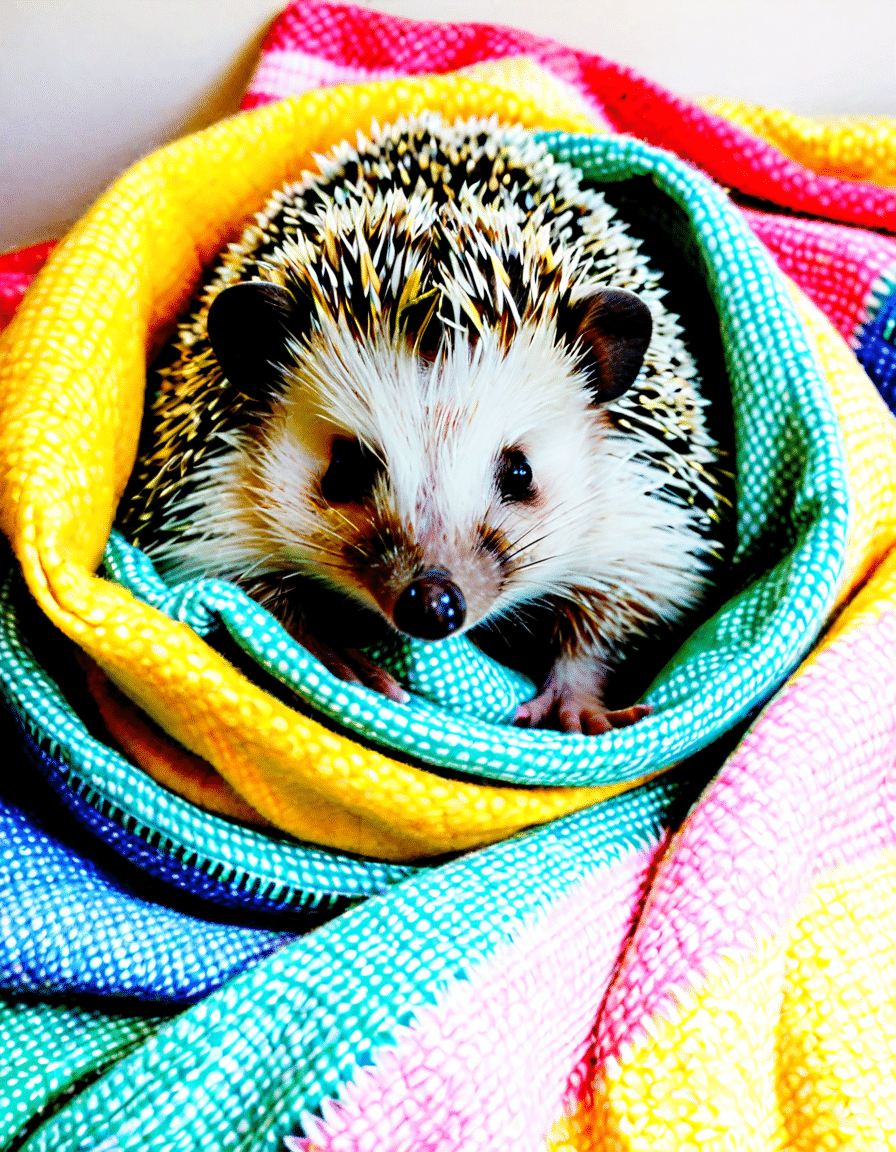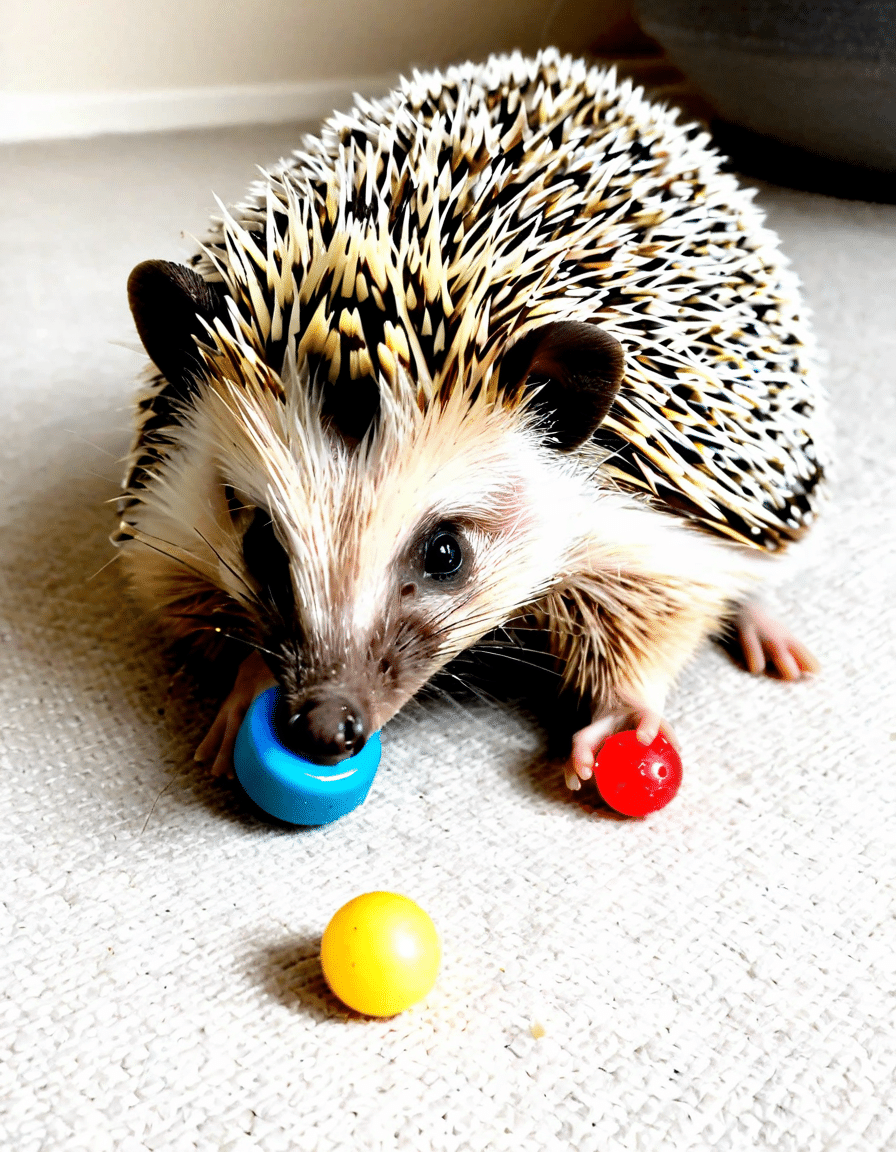When pondering the question “are hedgehogs a rodent?”, many people encounter confusion due to the undeniable charm and peculiarity of these spiky creatures. Hedgehogs belong to the family Erinaceidae, which is distinctly different from the rodent family, Rodentia. This article unpacks the taxonomy and behavior of hedgehogs, juxtaposing them against true rodents like rats and mice. Understanding their classification and traits is essential for both potential pet owners and wildlife enthusiasts alike.
1. Understanding Hedgehogs: Are They Rodents or Not?
Hedgehogs have long fascinated many, leading to the inevitable question: are hedgehogs rodents? As a member of the Erinaceidae family, they’re actually closely related to animals like shrews and moles. This family classification showcases not only biological differences but also a range of behavioral traits that set them apart from rodents.
Unlike rodents, which are characterized by continuously growing incisors, hedgehogs have oven-like spines enveloping their body—a significant distinguishing feature. Rodents, on the other hand, include animals like squirrels, hamsters, and, of course, the common rat. By understanding these classifications, we not only clarify what hedgehogs are but also enhance our appreciation for the diverse animal kingdom.
Interestingly, hedgehogs are primarily nocturnal, meaning they’re active at night. This contrasts with some rodents, which can be diurnal (active during the day) or crepuscular (active during twilight). This habit of nocturnal activity aligns hedgehogs more closely with behaviors seen in some insectivores rather than rodents.

2. Top 5 Myths About Hedgehogs: Debunking Common Misconceptions
Let’s clear the air and debunk some common myths around hedgehogs. These misconceptions swirl around various aspects, so here are the top five myths worth discussing:
3. Exploring Related Species: Are They Close to Rodents?
Comparing hedgehogs to animals in closely related families offers greater clarity about their unique traits. Shrews and moles, both from the order Eulipotyphla, share some similarities but differ significantly from hedgehogs. For instance, these animals primarily focus on a diet rich in invertebrates and are equipped with bodily adaptations that facilitate their specific lifestyles.
While hedgehogs thrive on a diet rich in insects, shrews consume a mixture of insects and small vertebrates. Their habitats vary widely, with hedgehogs often making nests on the ground or beneath bushes, while shrews can be more secretive, preferring to dwell in leaf litter or underground tunnels.
Moreover, rodent behavior varies greatly from that of hedgehogs. Rodents tend to display more social behaviors, often living in colonies, whereas hedgehogs are solitary creatures. This distinction is vital for pet owners considering the social needs of different species.

4. The Diet Dilemma: Are Hedgehogs Carnivores Like Snakes?
The burning question emerges: “Are snakes carnivores?” Just as snakes primarily consume meat, hedgehogs are also classified as insectivores, relying heavily on a diet of insects. Their nutritional needs are quite specific; they thrive on protein-rich foods.
A good diet for hedgehogs includes high-quality pellets, insects like mealworms, and occasional fruits and vegetables. However, it’s crucial to stay away from dairy products, as they can harm these little creatures. Introducing a well-balanced diet helps maintain their health and vitality.
For comparison, snakes feast on a diet consisting mainly of rodents and other small animals, highlighting the stark contrast in dietary habits between the two species. By knowing what to feed hedgehogs, pet owners can avoid making common mistakes and better support their pet’s health.
5. Wildlife Health: Are Overweight Populations Bad for Hedgehogs?
When we discuss wildlife health, one question arises: are overweight wildlife populations bad? In recent years, urbanization has significantly impacted hedgehog populations, often leading to obesity due to human-made food sources. Hedgehogs tend to roam urban areas, foraging in gardens and backyards, which can lead to an unhealthy diet.
Overweight hedgehogs are at a higher risk for a multitude of health problems, including diabetes and heart disease. Acts such as leaving out catering for wildlife can inadvertently harm hedgehogs. To maintain a healthy population, we must promote natural foraging methods through habitat conservation.
By understanding the impact of our environment and diet on wildlife, such as our prickly little friends, we can foster a balanced ecosystem. This is crucial not just for hedgehogs but for various other wildlife as well. When we consider how to care for these animals in the wild, we help preserve their populations for future generations.
Bringing Light to the Facts: Clarifying Hedgehog Myths
In summary, clarifying common misconceptions about hedgehogs furthers our understanding of these incredible creatures. By diving into their biology, dietary needs, and their distinct differences from rodents, we highlight the true essence of hedgehogs. It’s essential for potential pet owners and wildlife enthusiasts to appreciate these little critters individually, ensuring that their care promotes both their health and conservation.
The spread of myths leads to misunderstandings and sometimes even poor care practices. By educating ourselves and others, we can help protect hedgehogs and enrich our own lives as pet owners or animal lovers. After all, these little spiky bundles of joy play an important role in our ecosystems, and acknowledging their true nature helps us nurture a more harmonious relationship with the wildlife around us. So, the next time someone asks, “Are hedgehogs a rodent?” you’ll have the facts to set them straight!
For those who also love keeping other pets, check out articles on chinchilla orange balance or the lifespan Of Staffy Dogs to learn more about caring for your furry, feathery, or scaly friends!
Are Hedgehogs a Rodent: Myths and Facts You Should Know
The Hedgehog’s Family Tree
Let’s get straight to the elephant in the room: are hedgehogs a rodent? The answer is a resounding nope! Hedgehogs belong to a group called Erinaceidae, which makes them more closely related to shrews than they are to rodents. That might surprise some folks who automatically think of them as just another little critter in the rodent family. Interestingly, their sharp quills serve as one of their coolest defenses. If you’re into wild travel Sites, you might find hedgehogs roaming around parks or gardens on your next adventure!
Fun Facts and Oddities
Now here’s a fun nugget: hedgehogs have been around for millions of years! Some scientists believe they share a lineage with creatures dating back to the time of dinosaurs. How’s that for a conversation starter? These little spiky buddies are also nocturnal, meaning they sleep all day and party all night. On a side note, if you’re a cat owner, you might be curious about the world’s best cat litter and how it affects pet hygiene—because we all love our furry friends to be comfortable!
Squeaky Clean: A Hedgehog’s Care
Speaking of cleanliness, hedgehogs have quirky habits when it comes to grooming. They often roll in dirt or even other animals’ scents! This behavior, known as “self-anointing,” is believed to help them disguise their scent from predators. It’s just one of those oddities that make them special. Meanwhile, if you’re like many pet owners worried about pesticide exposure, check out facts about Imidacloprid lawn Pesticides And Pets to keep your pet safe in your garden space.
So, if you’ve ever pondered, “are hedgehogs a rodent?” now you know the truth. These enchanting creatures are far from being in the rat family—so keep enjoying their quirkiness without a second thought!



